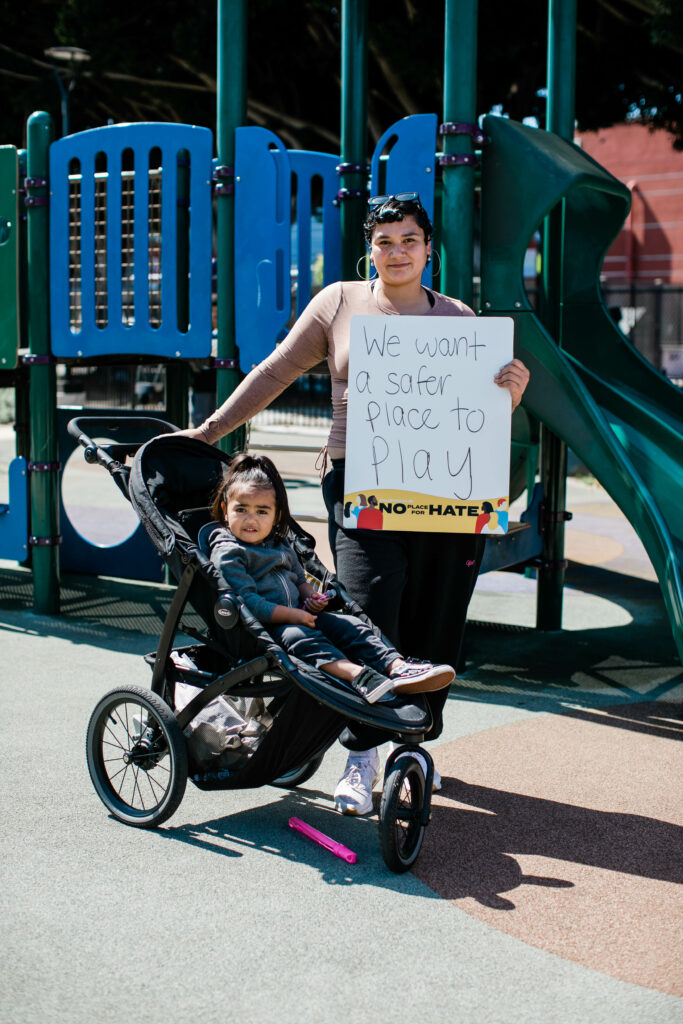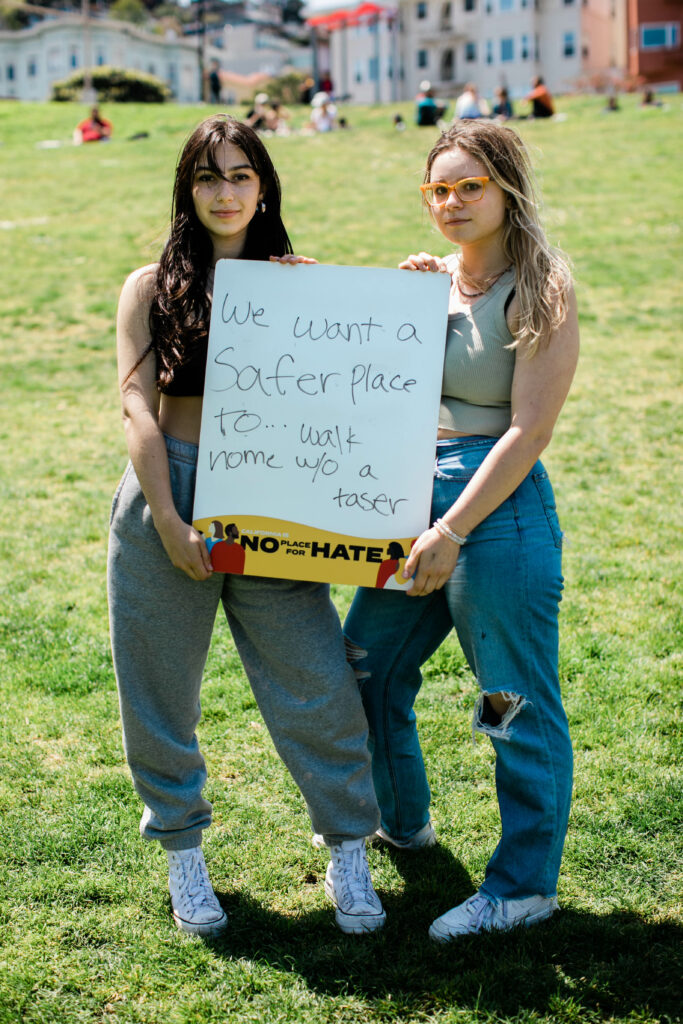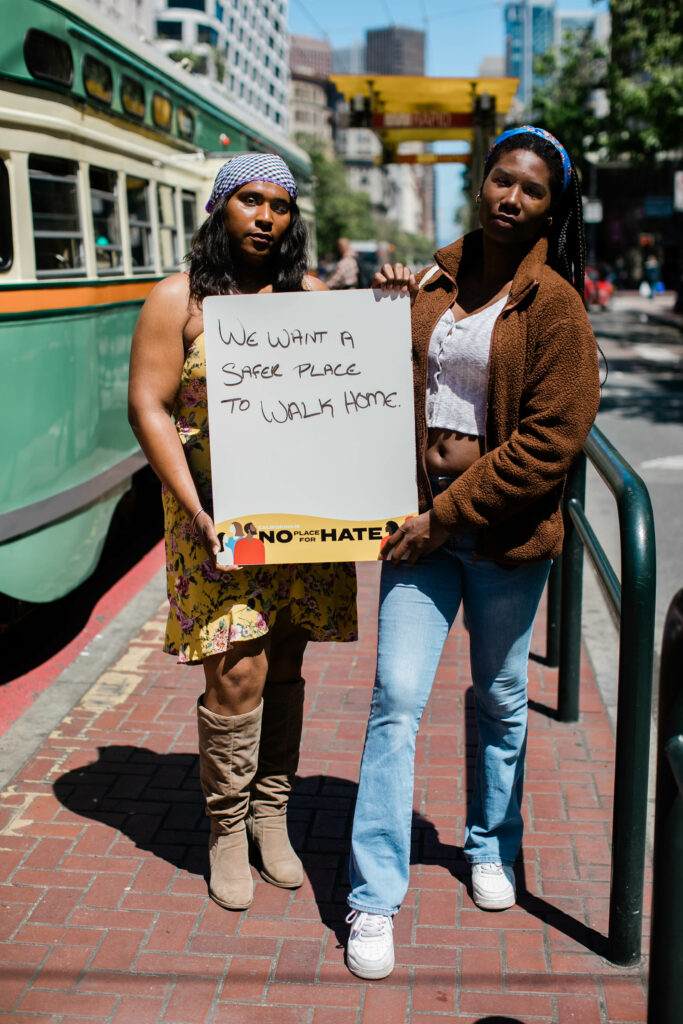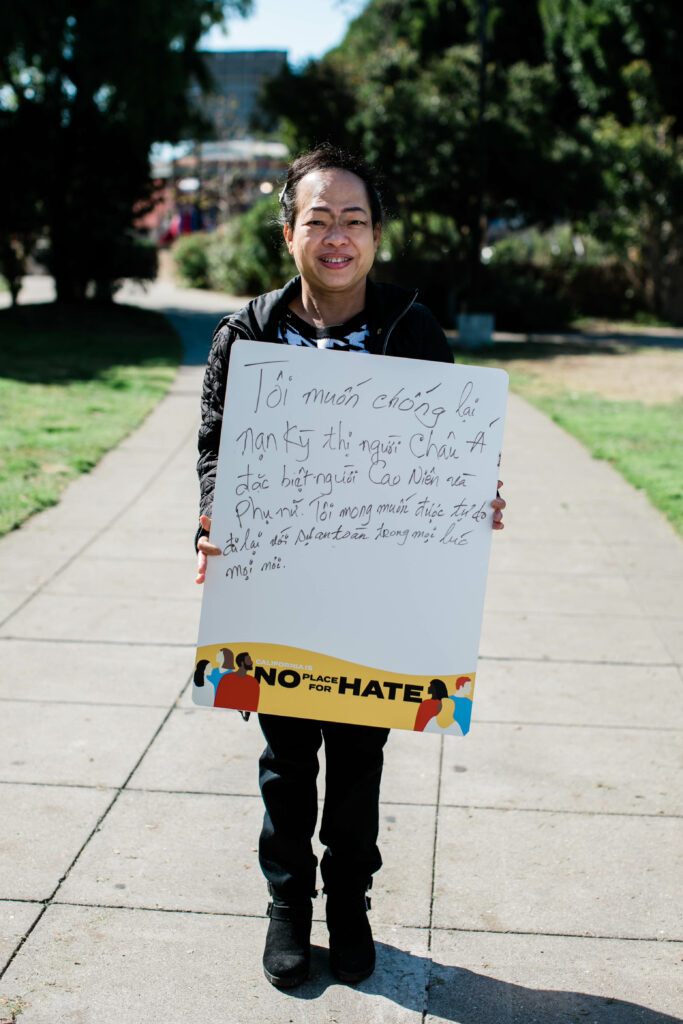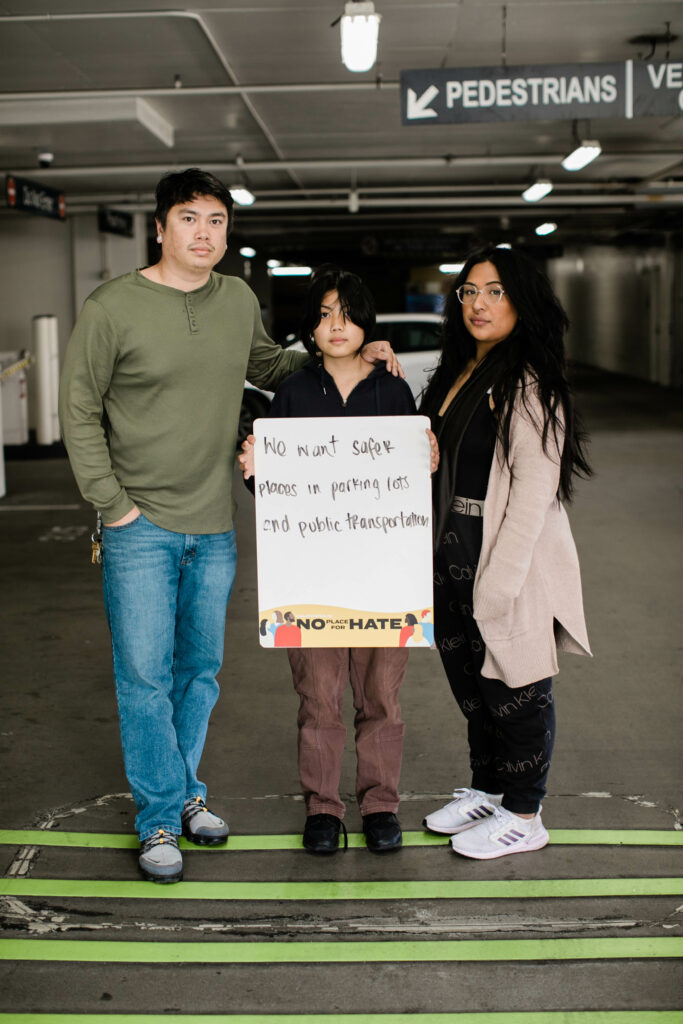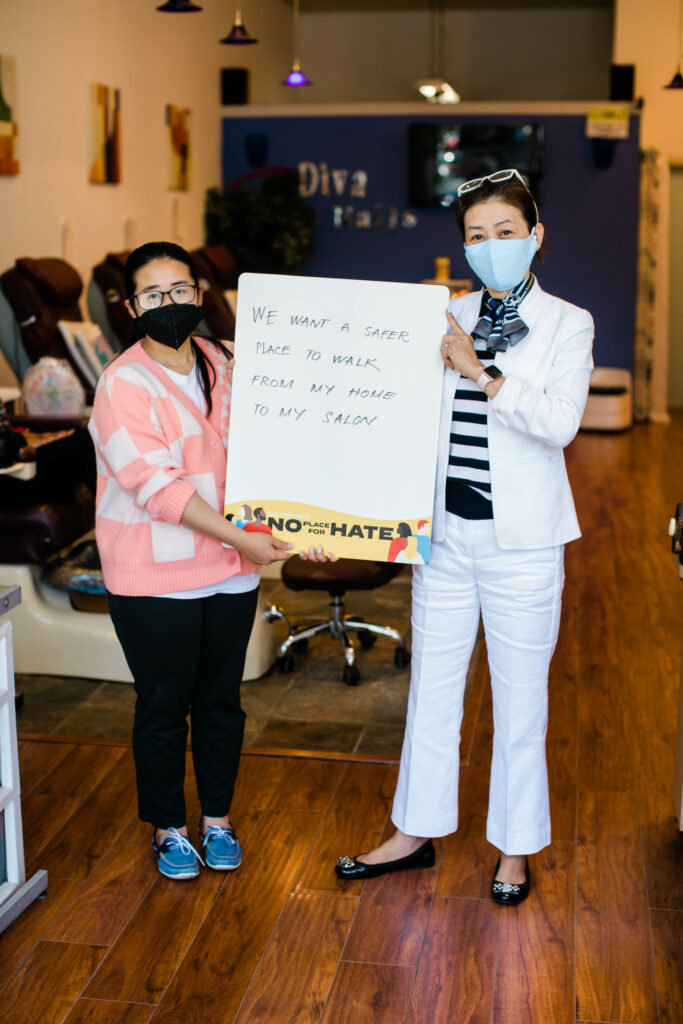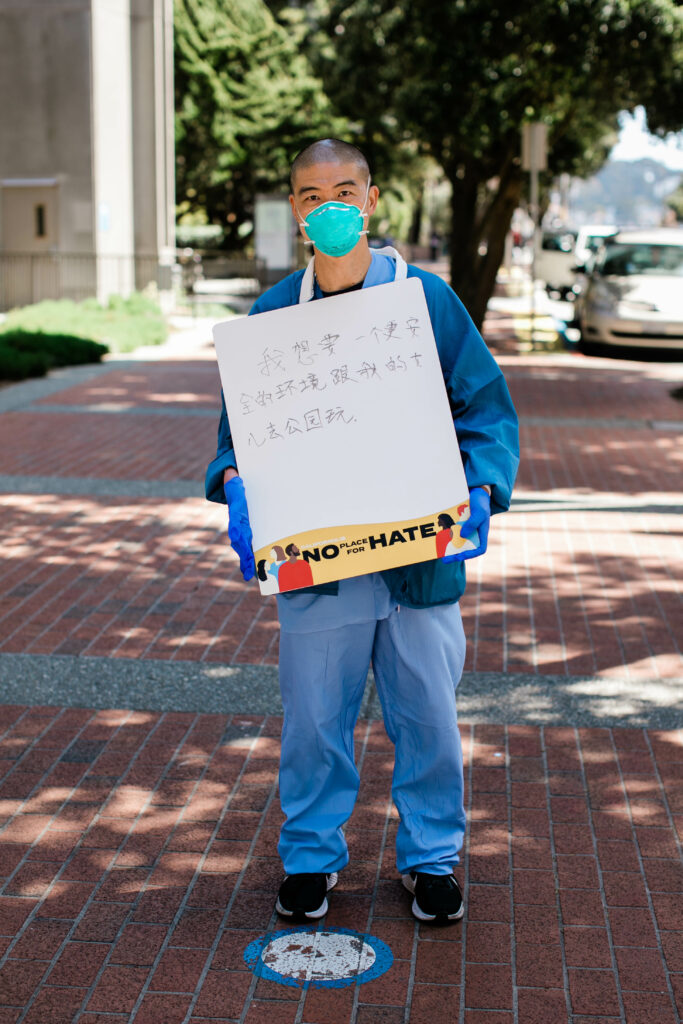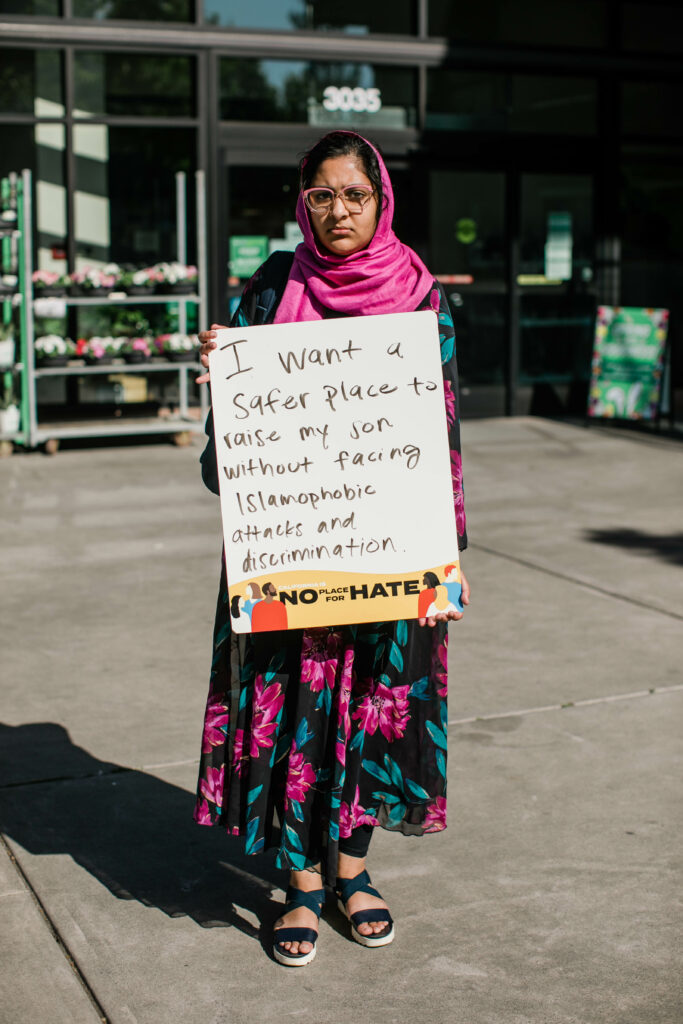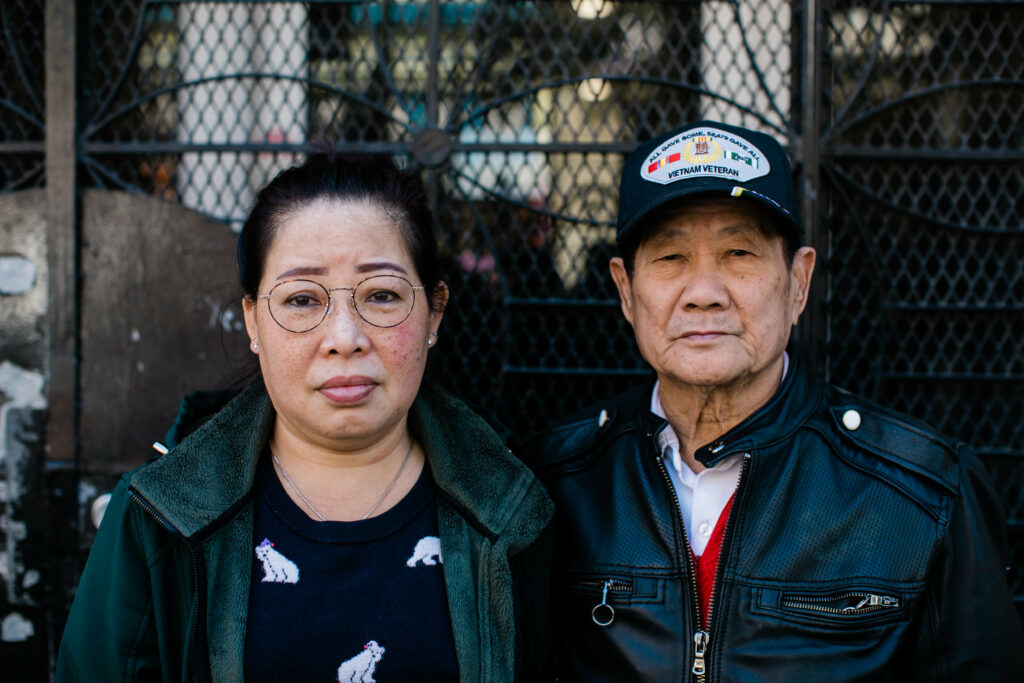
All of us have the right to public places — but for millions of women, girls, and people of color, street harassment can make streets and sidewalks, public parks, and transit stations feel unsafe.
We want to change that. To start a broader conversation about street harassment, including what it looks like and who it affects, CAA and Stop AAPI Hate started the Safer Place campaign, which invited people to imagine what a safer, more accessible future could look like.
Hundreds of people answered the call, using the hashtag #SaferPlace to share their experiences being shouted at or followed down the street. This included dozens of Asian Americans and Pacific Islanders (AAPIs).
“Taking the bus scares me now,” said Rebecca*, a recent immigrant from China. “It leaves me panicked. Sometimes, when I have to work late, I feel like I should make an excuse so that I don’t have to ride public transit.”
“I tell people that I like working from home,” added Sheryl, who identifies as Filipina American, “and one reason is that I’m still too scared to go outside on my own.”
“My son’s first experience with hate and harassment took place at a playground,” said Sadia, who is Pakistani American. “He was a year old at the time.”
The campaign drew interest from individuals of all ages, ethnicities, and walks of life as well as mainstream media and elected officials — who joined our calls for safer, more accessible places for their families to pick up groceries, or walk the dog, or ride the bus without fear of the consequences. Their stories remind us that for millions of us, in California and across the U.S, street harassment is a fact of life that all too often we are forced to navigate as individuals.
This spring, CAA joined 100+ organizations in supporting No Place For Hate California, the Stop AAPI Hate legislative agenda that holds the government accountable for creating safer, more accessible spaces for all of us. Its two bills — each charting a path through the state legislature — address harassment in public transit, and retail businesses, while a separate budget request declares street harassment a public health problem.
If successful, No Place For Hate California will set a new standard for addressing harassment against women, girls, and communities of color. It represents a meaningful step in the direction of a safer, more liberated future that people described for us on social media last week — where children can play unattended, where women can walk home after dark, and where public places are accessible to all of us, no matter who we are and how we identify.
Update: No Place For Hate California is still making its way through the state legislature with two bills sailing through the first house this week and the budget proposal undergoing consideration until June 15. Click here to learn more, and what you can do to support the cause.
You can also keep scrolling for a closer look at the people whose experiences inspired this campaign.
